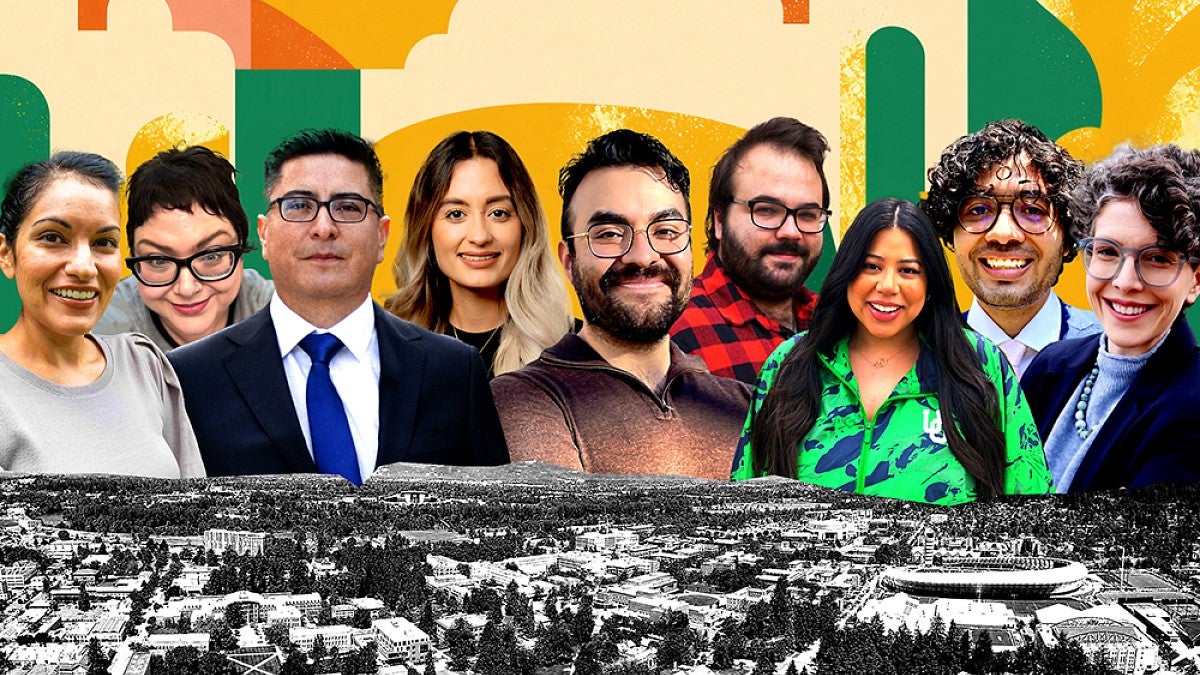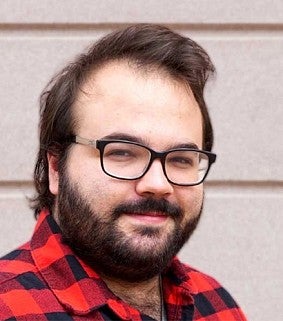
The College of Arts and Sciences is investing in its Latinx studies courses by hiring nine new tenure-track faculty members. The new hires will offer courses to meet the demands of a growing Latinx Studies Minor Program, mentor undergraduate and graduate students, provide fresh perspectives in their disciplines—and more.
One of the new hires is Guillem Belmar Viernes, who is joining the Department of Linguistics. After working as a foreign language teacher in Catalonia, Guillem Belmar Viernes was inspired by language revitalization efforts to pursue a PhD at University of California, Santa Barbara, where he has worked with the Indigenous Mixtec diaspora in California on language documentation and social justice efforts.

What is your research on?
I work mostly on Mixtec languages in the diaspora, mostly in California, although a lot of the people that I work with actually have family in Oregon. I've been working on documenting a particular Mixtec variety that's widely spoken in the diaspora but for which there’s not a lot of documentation available. I'm also looking at intelligibility between different Mixtec languages in the diaspora, and how we can use this for interpreters.
I’ve been working a lot on interpretation in the medical area, which is not something that I was at first going to deal with, but I did grad school during COVID, so it was something that kind of like came to us, and we had to deal with it.
I work a lot with Mixtec interpreters in Santa Maria [California], in collaboration with medical students discussing how to how to interpret medical terms into Mixtec languages in ways that can be easily understood but that are also medically accurate. At the same time we work to make doctors understand what it is like to work with an interpreter of an Indigenous community.
How does your research contribute to a liberal arts degree?
Linguistics is the study of language, and you can study it from any perspectives and any subfield. For example, somebody could be studying the language around a particular STEM subfield, or somebody can be doing language in a very quantitative manner and use a lot of stats in it. Or somebody can be using ethnography. In my experience, that’s the reason a lot of undergrads get interested in linguistics.
I have worked with research assistants who were linguistic majors, psychology majors, communication majors, math majors. On paper, you're like, why are they interested in a linguistics? But it's because there are also things that fall under their specialty. Everyone uses language, and everyone is somewhat interested in language.
How does your research add to a liberal arts education?
Everyone is very aware of the dynamics between English and Spanish in the US, even if maybe they don't put it in words. But what is the dynamic between Spanish and all the other languages of Latin America?
There’s always a student in one of my classes that says, ‘My grandma spoke that language.’ And they relate to the lesson and get interested. Students learn better if they can relate to the content or the stories you’re telling in class.
When I arrived in Santa Barbara, I realized how much you would miss without speaking Spanish. And then I learned that so many people around here grow up without speaking any Spanish. But you're missing a lot of things that happen around you where you live, right? I'm not saying that everyone needs to speak Spanish, but they should realize the realities and the perspectives of their neighbors, right? The more you understand that, the easier it is to just communicate with each other and understand each other's point of view.
Desert Island book:
In English, one book I keep coming back to is George Orwell’s 1984. If I feel like reading in Spanish, it’s 100 Years of Solitude by Gabriel Garcia Marquez. But what I would take to a desert island is A Broken Mirror by Catalan author Mercè Rodoreda, which follows a family in Barcelona through different generations.
